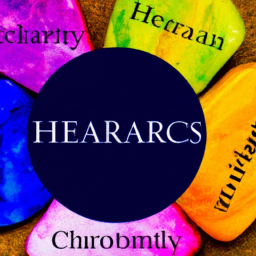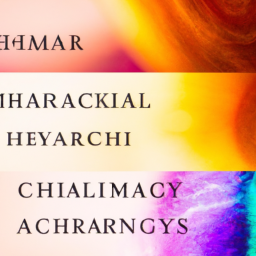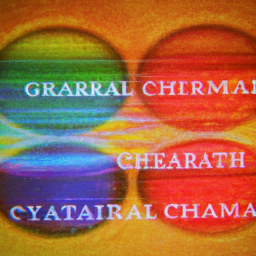Chakras are energy centers located along the spine in our bodies. According to ancient Hindu and Buddhist beliefs, there are seven main chakras. Each chakra is responsible for different aspects of our physical, emotional and spiritual well-being. When all our chakras are aligned and balanced, it creates a sense of harmony and peace within ourselves. However, when our chakras are blocked or overactive, it can lead to various imbalances, including one of the most common emotions we all experience – anger.
Anger is a natural and healthy emotion. It serves as a defense mechanism and helps us express our dissatisfaction and frustration towards certain situations or people. However, when anger becomes excessive or uncontrollable, it can have detrimental effects on our physical, mental, and emotional well-being. It can cause high blood pressure, muscle tension, headaches, and eventually lead to anxiety and depression.
When it comes to understanding why our chakras play a significant role in managing our anger, we need to delve deeper into the characteristics of each chakra.
Root Chakra
The first chakra, also known as the root chakra, is situated at the base of the spine. It is responsible for grounding us and providing a sense of stability and security in our lives. When this chakra is blocked, we may feel ungrounded, insecure, and fearful. This can manifest as aggression and impulsive behavior, leading to outbursts of anger.
Sacral Chakra
The second chakra, the sacral chakra, is located slightly below the belly button. It is associated with our emotions, creativity, and relationships. An imbalance in this chakra can cause us to be overly sensitive and easily triggered by external situations. We may also struggle with controlling our emotions and lashing out in anger.
Solar Plexus Chakra
The third chakra, the solar plexus chakra, is located in the upper abdomen. It is associated with our self-esteem, personal power, and assertiveness. When this chakra is blocked, we may feel a lack of control over our lives, leading to feelings of frustration and anger towards ourselves and others.
Heart Chakra
The fourth chakra, the heart chakra, is located in the center of the chest. It is associated with love, compassion, and forgiveness. When this chakra is closed, we may struggle with expressing our emotions and have difficulty letting go of grudges, causing us to hold onto anger for extended periods.
Throat Chakra
The fifth chakra, the throat chakra, is situated in the throat area. It is associated with communication and self-expression. When this chakra is blocked, we may have difficulty expressing our anger in a healthy and constructive manner. This can lead to bottling up our emotions, resulting in explosive outbursts later on.
Third Eye Chakra
The sixth chakra, the third eye chakra, is located between the eyebrows. It is associated with our intuition, perception, and insight. A blockage in this chakra can cause us to ignore our inner thoughts and emotions, leading to repressed anger that can erupt unexpectedly.
Crown Chakra
The seventh and final chakra, the crown chakra, is situated at the top of the head. It is associated with our connection to the divine and our higher self. When this chakra is closed, we may feel disconnected from ourselves and others, causing us to feel frustrated and angry.
Understanding the connection between our chakras and anger is the first step towards managing and controlling our emotions better. By identifying which chakra is blocked or overactive, we can work towards balancing and harmonizing that energy center, ultimately leading to a calmer and more peaceful state of mind.
There are various ways to balance and unblock our chakras, including meditation, yoga, sound healing, and energy work. Additionally, practicing mindfulness and self-awareness can also help us regulate our emotions and prevent excessive anger.
Remember, our emotions are a crucial part of our human experience. It is essential to acknowledge and honor them, but it is equally important to have a healthy and balanced approach towards expressing them. By incorporating chakra healing into our daily lives, we can transform our anger into positive energy and live a more peaceful and fulfilling life.






Anger can be a powerful emotion and it’s important to learn how to manage it. #ChakraAnger
Agreed – understanding and channeling excess anger through our chakras can be a great way to take control of our emotions!